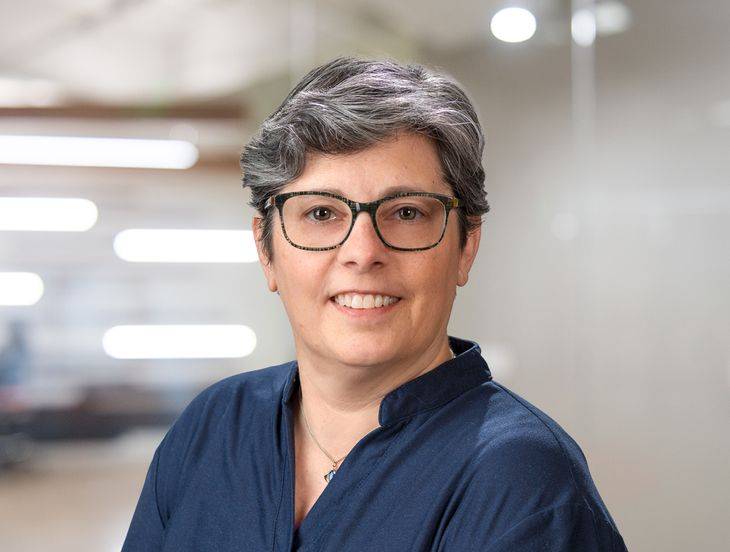Cussing Cheerleader Wins SCOTUS Free Speech Case, Creating Headaches for Public Schools Dealing with Off-Campus and Social Media Messages
Insights
6.23.21
By an 8-to-1 vote, the U.S. Supreme Court affirmed today that public schools might have an interest in regulating student speech, but the leeway the First Amendment grants to schools is diminished in the off-campus context. Accordingly, given the specific facts presented in Mahanoy Area School District v. B.L., the Court held that the school district violated Brandi Levy’s rights when it suspended her from its junior varsity cheerleading squad based on a crude Snapchat post. This decision is especially important in today’s environment where social media and digital communications blur what is and is not considered on-campus speech.
An Off-Campus “Snap” Starts Years of Litigation
In 2017, Brandi Levy (or “B.L.” in the resulting years of litigation) a then 14-year-old high school honor student and cheerleader at Mahanoy Area School District, posted a message – or “Snap” – to Snapchat. For context, Snapchat is a mobile application that allows users to send messages to specific individuals that are accessible for short periods of time (generally under 10 seconds) and that self-delete after 24 hours.
Frustrated that she had been relegated to another year on the junior varsity squad, Levy posted a photo of her and a friend’s upraised middle fingers with the text “f-ck school f-ck softball f-ck cheer f-ck everything” superimposed on the image. She posted the Snap on a Saturday, while at a local convenience store, and not while she was participating in a school activity. She posted a follow-up Snap just afterwards that read: "Love how me and [my friend] get told we need a year of jv before we make varsity but that doesn't matter to anyone else?" – bemoaning the fact that a rising freshman had made the varsity squad and would skip junior varsity entirely.
These Snaps were available to Levy’s “friends” on her social media account but not the general public. However, some of Levy’s Snapchat “friends” were fellow cheerleaders. One of those cheerleaders, the daughter of a squad coach, came across Levy’s Snaps, took screen shots of them, and brought them to the cheerleading coaches’ attention. The following week, students (cheerleaders and non-cheerleaders) commented to the cheerleading coaches that they believed Levy’s Snaps were inappropriate. The coaches then suspended Levy from the cheerleading squad for one year for violating team rules – rules Levy agreed to abide by – that prohibited foul language and inappropriate gestures “at games, fundraisers, and other events” as well as “any negative information regarding cheerleading, cheerleaders, or coaches placed on the internet.”
Levy’s parents appealed to the School Board, which declined to get involved. So, Levy – through her parents since she was a minor – filed suit for declaratory and injunctive relief in the Middle District of Pennsylvania claiming the school’s actions violated her rights to free speech under the First Amendment. The trial court entered a preliminary injunction against the school in 2017, immediately reinstating Levy to the JV cheerleading squad. She would later make the varsity squad her junior and senior years. The trial court ultimately entered summary judgment in favor of Levy, finding that the School District had violated her First Amendment Rights.
The Lower Court’s Decision
The School District appealed the decision, arguing that online speech should be considered on-campus speech regardless of where it physically occurred so long as it mentioned the school, teachers, or administrators, was shared with or accessible by students, or otherwise reached the school environment. These factors should be enough, it argued, to find the speech occurred “within the school context.”
But the Third Circuit Court of Appeals agreed with Levy and the lower court, ruling that public school students have the same rights to free speech as everyone else. While public schools perform important, delicate, and highly discretionary functions, it said, there are none that they may perform outside the limits of the Bill of Rights. As a result, while public schools have heightened authority to regulate student speech, they are also expected to scrupulously protect the speech rights of its students, lest the free mind be “strangled at its source” or students be taught to discount important governmental principles as “mere platitudes.”
The Third Circuit acknowledged that discerning and enforcing the line separating “on-campus” from “off-campus” speech “has been tricky from the beginning” and made more difficult by student use of social media and other forms of online communications. Still, relying on Circuit Court precedent analyzing online speech, the Third Circuit “easily concluded” that Levy’s speech fell outside of the school context. For example, it was not made in a “school sponsored” forum, did not “bear the imprimatur” of the school, and did not involve a school owned or operated online platform. Rather, the speech was made off-campus, on the weekend, and shared on a social media platform unaffiliated with the School District. While it mentioned the school and reached School District students and officials, the Third Circuit held that those “few points of contact” were not enough to render Levy’s speech “on-campus.”
Noting that the School District testified from the very beginning that Levy’s suspension was based on her “profanely referencing cheerleading, not because of any possibility of disruption,” the appeals court found that the School District had not established a reasonable expectation of a substantial disruption and could not justify Levy’s suspension under the groundbreaking Tinker v. Des Moines Independent Community School District Supreme Court case from 1969 (examining the issue of student protests during the Vietnam War). Given the facts of Levy’s case, the foregoing analysis arguably should have ended the matter. However, the Third Circuit went further and held that Tinker was inapplicable to student speech occurring outside school-owned, school-operated, or school-supervised channels and that was not reasonably described as bearing the school’s imprimatur.
The Supreme Court Disagrees, but Affirms
On appeal, the Supreme Court affirmed the Third Circuit’s judgment but disagreed with its reasoning, stating that “the special characteristics that give schools additional license to regulate student speech do not always disappear when a school regulates speech that takes place off-campus.” The Court provided several examples of “off-campus behavior” that “may” call for school regulation, such as “serious or severe bullying or harassment targeting particular individuals; threats aimed at teachers or other students; the failure to follow rules concerning lessons, the writing of papers, the use of computers, or participation in other online school activities; and breaches of school security devices, including material maintained within school computers.” Accordingly, it rejected the Third Circuit’s reasoning that Tinker was never applicable in the off-campus context.
Noting that the line between on-campus and off-campus speech did not lend itself to a list of exceptions or “carveouts” to the Third Circuit’s holding as to Tinker’s applicability, the Court described three features that often distinguish school efforts to regulate student speech: (1) a school “will rarely stand in loco parentis when a student speaks off campus;” (2) from the student speaker context, school regulation of off-campus speech, coupled with regulation of on-campus speech, includes all the speech a student utters in a day, meaning “courts must be more skeptical of a school’s efforts to regulate off-campus speech; and (3) while the school may have an interest in regulating disruptive, obscene, or speech bearing its imprimatur (like a school newspaper), it also “has in interest in protecting a student’s unpopular expression” because schools are “nurseries of democracy.” Taken together, these features “mean that the leeway the First Amendment grants to schools” is diminished when it comes to student off-campus speech.
With that foundation, the Court quickly resolved the matter on its particular facts.
- First, it found that Levy’s Snaps deserved First Amendment protection because, while crude and perhaps vulgar, they did not amount to fighting words or obscenity.
- Further, her Snaps appeared outside of school hours, from a location outside the school, did not identify the school or target any member of the school community with vulgar or abusive language, and were transmitted through her personal cellphone to an audience consisting of her private circle of Snapchat friends. As a result, there was no reason to believe Levy’s parents had delegated to the school the right to control her behavior at an off-campus location or on a Saturday.
- Finally, the Court found “no evidence in the record of the sort of ‘substantial disruption’ of a school activity or a threatened harm to the rights of others” that might have justified the school’s action under Tinker.
Accordingly, it affirmed the Third Circuit’s judgment that the School District violated Levy’s First Amendment rights.
What Does This Mean For K-12 Schools?
Today’s ruling applies only to public schools. Going forward, public schools should be cautious in its regulation of student speech. Today’s decision requires that school officials understand the line between on-campus and off-campus student speech. This will not be an easy task, as this line is and has always been difficult to determine. However, the Court’s opinion provides new guidance for this analysis.
In addition, public schools should look to their policies and procedures as to student speech, which may require revision following today’s decision. Schools should also be mindful that restrictions or punishments for speech deemed too harsh, particularly those related to student protests, are likely to attract substantial negative media attention, even if they may be constitutionally permissible. Accordingly, the fact that any such actions could result in unwanted attention for your school and faculty should be taken into consideration when determining a best course of action.
If you have any questions about how to respond to student speech at or affecting your institution, please contact your Fisher Phillips attorney or any member of our Education Practice Group. To ensure you stay up to speed with the latest developments, make sure you are subscribed to Fisher Phillips’ Insight System to get the most up-to-date information.
Related People
-
- Lisa A. McGlynn
- Partner
-
- Sarah Moore
- Of Counsel

